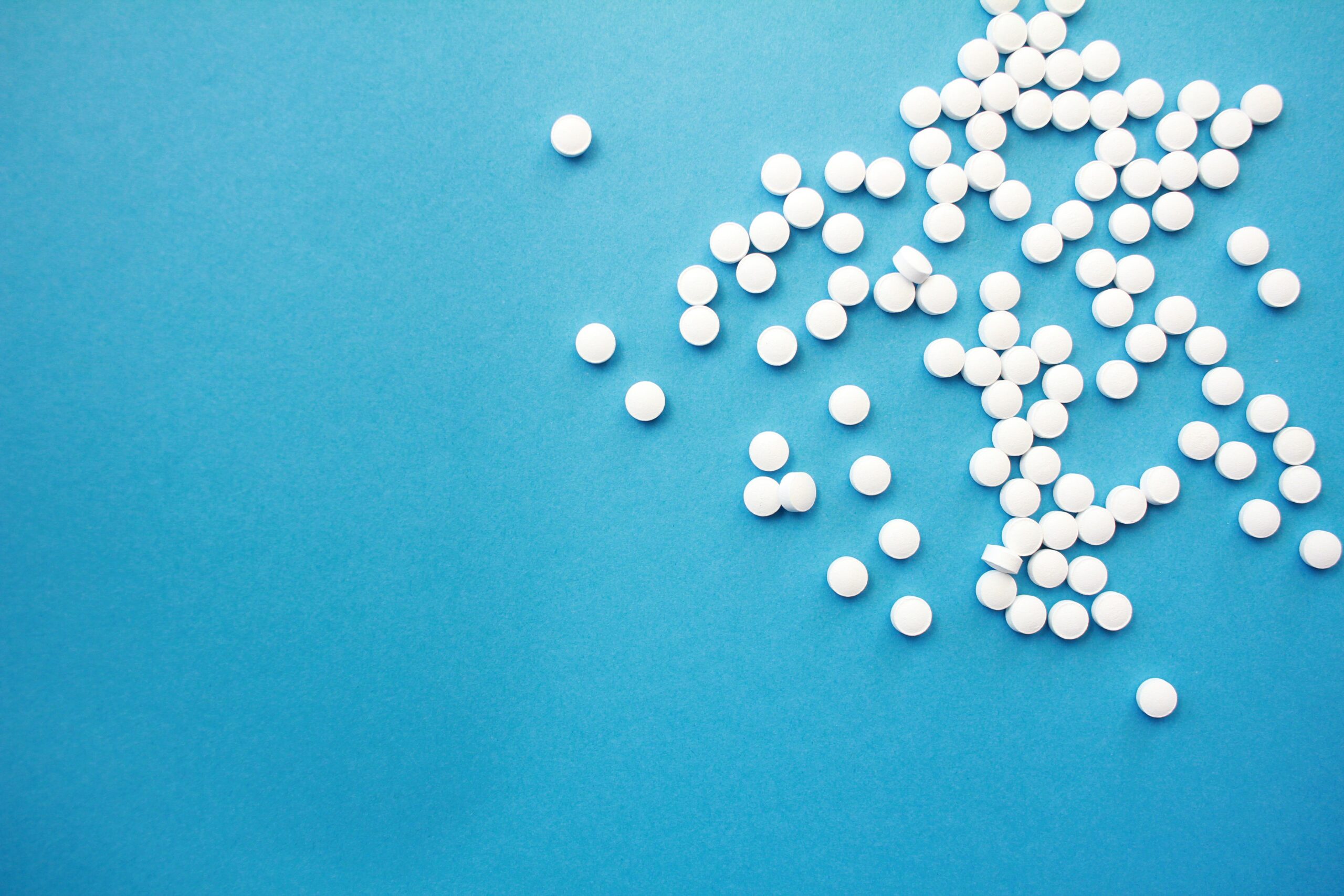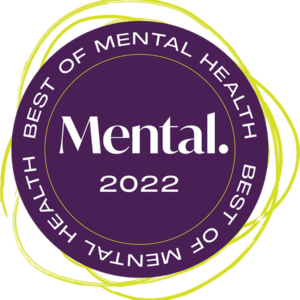In the mental health world, a debate persists: to pill or not to pill? For some, prescription meds can be lifesaving; for others, they’re not a preferred treatment method. In “The Pill Diaries,” we’ll be telling your stories in your own words. The goal: End pill shaming, bust stigmas, and promote understanding. After all, each person’s journey to better mental health is uniquely their own.
“I used to take meds for depression (Wellbutrin) and bipolar I (Lamictal). I struggled for years to accept that psych meds will be a lifelong piece of my mental health puzzle. What changed is the realization that I would never grow out of bipolar disorder, and depression is not something I would grow into (not for lack of trying). I want to stick around for my kids, my family, my friends, for me.
“It took the sudden, unexpected death of my mom (nearly five years ago) for me to feel like, Ok, now I have a reason to seek therapy and accept the fact that I may need medication. I find it so sad that I kept waiting and waiting for an ‘excuse’ to start treatment for something I had been struggling with for such a long time. Grief is mysterious and weird… My mom, in her passing, gave me the gift of feeling at peace with breaking my silence.
“It was such a relief to open up to my loved ones about something I had battled alone for so long. I no longer feel shame telling my dad or husband or friends, Hey, I’m adjusting to some new meds. I might be a little off. Or I had a really productive session with my therapist. Or I need help.
“[At the time, my thinking was], all the psychotherapy and coping skills in the world will not change the biochemical elements in my brain that need something bigger than I can work out/work on by myself. Meds felt like a vital compliment to the other tools I employ to keep my mental health in check.
“But in January 2020, I decided to wean myself off all meds. I had been floundering and felt tired of existing without my creative spark. I missed my libido. I missed the good parts of me that were dulled or softened by the meds. I felt strong and supported enough to at least *try* to stop taking psych meds, but I was absolutely open to the fact that I may want or even need them again at some point.
“I obtained my medical marijuana license and began
using cannabis to treat acute anxiety and insomnia, as needed. I continued to see my therapist regularly and felt as though I was thriving for the first time in many years. When the world shut down that March due to the pandemic, my therapist headed to Florida and our sessions resumed via FaceTime. Eventually, he retired and ghosted me. I missed in-person therapy.
“While my school-aged children shifted to a cyber model due to the pandemic—and in turn, I quit my job to become their ‘learning coach’—I began to see parallels in myself and my teenage son who has ADD (quick backstory: he was diagnosed in 4th grade, takes Adderall to manage his symptoms, and is now a high school senior).
“The combination of my son’s maturity and ability to articulate what ADD feels like to him helped me realize that maybe I should pursue testing for ADD/ADHD. Sidebar: Symptoms of ADHD are often mistaken for bipolar and/or other mental illness, especially in women. I’m learning more about the prevalence of
undiagnosed ADHD in adult women.
“I acquired a referral to a neuropsychologist and underwent four-plus hours of testing and an interview, which finally pointed to a clear ADHD diagnosis. I felt simultaneously validated, seen, and yet…mystified. All those years as a ‘moody’ kid struggling in school, all those deficits in my ability to learn or remember things, and nobody even considered that I may have a learning disability?
“I was in tears reading my diagnostic report because it pulled so many things into view for me, in a way that finally began to make sense. I felt hopeful.
“This is where things fell apart. The diagnosis gave me hope, and recommendations were made for specific medications—but, I couldn’t find a doctor or psychiatrist who would treat me for ADHD with the recommended meds due to my former bipolar diagnosis.
“[How did I get the bipolar diagnosis in the first place?] There was a discernible shift in my mood around 2017 that led me to open up to my psychiatrist about feeling angry and enraged for seemingly no reason. I was already being treated for anxiety and depression, but the ragey feeling was new to me—I literally felt compelled to Hulk out and break shit; I did not, thankfully, act on that—but I did not have a classic manic episode.
“In hindsight, I wish I’d asked more questions about how he arrived at that bipolar diagnosis in one session. Instead, I walked out with a prescription for a mood stabilizer and utter desperation to not feel so angry anymore.
“I now think I was misdiagnosed with bipolar disorder. I think my ‘mania’ was the
typical hyperactive component of ADHD—the feeling of sometimes being driven by a motor, interrupting people in conversation, mood swings, etc.—but ADHD was not even remotely on my radar at the time.
“I did have a psychotic break after starting the bipolar meds where I did not sleep for days on end, which culminated with suicidal ideation and a brief hospitalization. The bipolar meds really f*cked me up; I just couldn’t see it at the time. I just kept muddling along thinking,
Whelp, this is bipolar, I guess I will adapt. And I’m frustrated that none of my care providers considered that the
meds were the cause of my sleeplessness or exacerbated the moodiness. All I know for sure is my mental health issues only got murkier and more challenging with the introduction of bipolar meds.”
Mental Note: If you are having suicidal thoughts or experiencing a mental health crisis, text or call 988, the Suicide & Crisis Lifeline, any time day or night to speak with a trained counselor.
“[Finally with the ADHD diagnosis], I felt like help (meds) were almost within my grasp after years of struggling, only to be swiftly swiped away and met with dead end after dead end again and again… My primary care physician does not treat adult ADHD. She referred me to a neurologist, who also wouldn’t treat me due to my former bipolar disorder diagnosis, because certain stimulants can send a patient into a manic cycle.
“One psychiatrist I met with (telehealth appointment) suggested Wellbutrin (prescribed off-label) to manage ADHD; however, I was warned by the neuropsychologist who tested me that Wellbutrin can exacerbate anxiety and sleeplessness in patients who also suffer from anxiety (hi, that’s me), and that it’s not even proven to be effective in treating ADHD.
“I’d spent an obscene amount of money between the neuropsychological testing ($600 out of pocket), psychiatrists (totaling almost $1k), and the counseling/intake appointment (not covered by insurance) that is required before one can even see a psychiatrist. I was running out of money and options.
“I had a very comprehensive report of the ADHD testing and findings from the interview, a specific list of recommended medications to manage ADHD that would likely be helpful to me as a patient who also suffers from depression and anxiety, an addendum on the report that explicitly states that I was probably misdiagnosed with bipolar, yet Nobody. Would. Treat. Me.
“I just wanted to be able to focus and function as a mom/wife/friend/employee/HUMAN without feeling this oppressive efficiency glitch in my brain all the time. I’ve found ways to cope and have developed strategies (thanks to years of helping my son manage his ADD), but I knew it didn’t have to be this overwhelming.
“As a last resort, I set up an appointment with the psychiatrist who diagnosed me back in 2017 as bipolar. He prescribed Ritalin to help me manage my newish ADHD diagnosis. But my 5 mg dose wasn’t terribly effective and he wouldn’t increase it.
“In an interesting twist, I ended up on the podcast of a local general practitioner who was featuring stories from people who have felt misunderstood and unheard by medical professionals. I opened up to her, which led to me joining her practice as a patient!
“I now take 15 mg of Adderall daily, and my life has changed dramatically. I feel calm in a way that is foreign to me. I feel less anxious in general, more focused, and more confident in myself. Tasks that used to keep me up at night are now manageable. I don’t have a sense of dread when facing responsibilities that used to pummel me.
“Most importantly, this doctor truly listens and engages; she has a holistic approach and isn’t just ticking off boxes when I see her for med checks. We talk about my lifestyle, exercise, eating habits, family life, libido, perimenopause. I am utterly grateful for her care and compassion.
“I no longer take anxiety meds or antidepressants, just the Adderall, and I do use cannabis occasionally for acute anxiety or to
help me fall asleep. For the first time in my adult life, I am realizing my potential and making up for lost time. I feel hopeful and I feel like I am healing.”
MENTAL NOTE: A medication one person takes may not work for another and may have different side effects. Always talk to your doctor before trying or switching psychiatric medications.





